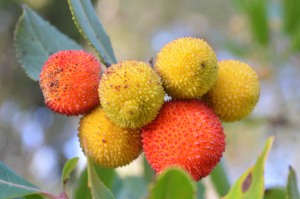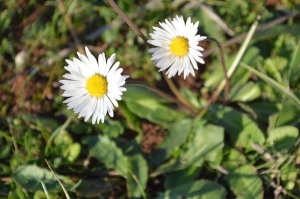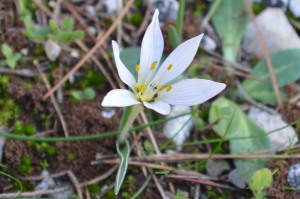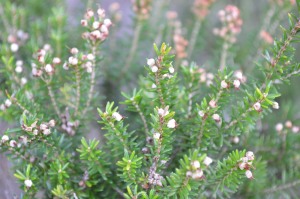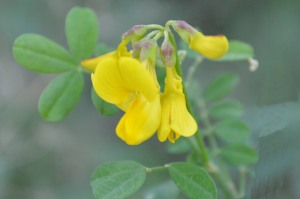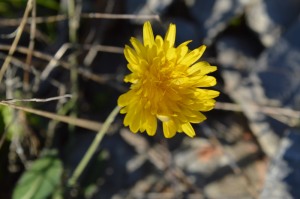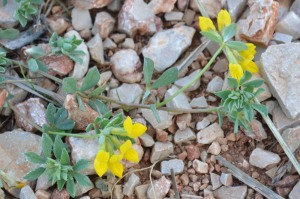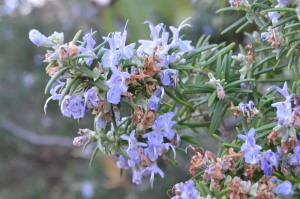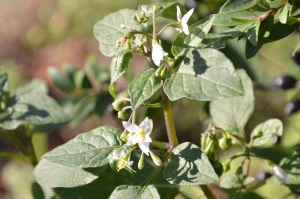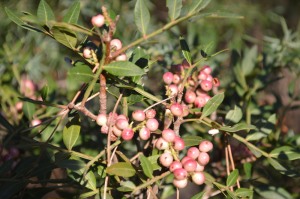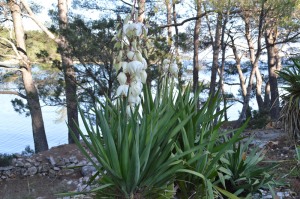-
Group banned plants ‘removed from habitat’ from its shows – causing uproar from enthusiasts
A furious row has blown up in the UK’s leading succulent society over the practice of taking desirable specimens from the wild, with the chair resigning in protest over the behaviour of his fellow enthusiasts.
Succulents have risen in popularity in recent years: they are attractive and hardy.
Continue reading...
-
Open letter calls for green policies that empower farmers, after months of protests jeopardise future of flagship biodiversity deal
The EU’s nature restoration law will only work if it is enacted in partnership with farmers, a group of leading scientists has said, after months of protests have pushed the proposals to the brink of collapse.
In an open letter, leading biodiversity researchers from across the world said that efforts to restore nature are vital for guaranteeing food supplies – but farmers must be empowered to help make agriculture more environmentally friendly if the measures are to succeed.
Continue reading...
-
Soiled seas and huge shareholder dividends: where has the £64bn borrowed by firms since privatisation gone?
So that’s how they do it. I’d been wondering how, when more sewage has been entering our rivers than ever before, some of the water companies have managed to improve the ratio of the sewage they treat v the sewage that pours untreated from their storm overflows into our rivers and the sea. Now we know.
It’s called “flow trimming”. Sounds innocuous, doesn’t it? What it means is that sewage is diverted into rivers and ditches upstream of the water treatment works. By reducing the amount of sewage entering the works, the companies can claim to be dealing responsibly with a higher proportion of it.
George Monbiot is a Guardian columnist. Join him for a Guardian Live online event on Wednesday 8 May at 8pm BST. He will be talking about his new book, The Invisible Doctrine: The Secret History of Neoliberalism. Book tickets here
Do you have an opinion on the issues raised in this article? If you would like to submit a response of up to 300 words by email to be considered for publication in our letters section, please click here.
Continue reading...
-
Researchers also find zebra finches 20% less likely to hatch from eggs if exposed to noise pollution
Noise pollution from traffic stunts growth in baby birds, even while inside the egg, research has found.
Unhatched birds and hatchlings that are exposed to noise from city traffic experience long-term negative effects on their health, growth and reproduction, the study found.
Continue reading...
-
Global warming and international trade offering increasingly hospitable environment
Some are small and jumpy; others are large and intimidating – if you’re a humble housefly. Exotic spiders are flourishing in Britain as international trade offers ample opportunities for spider travel and global heating provides an increasingly hospitable climate.
A jumping spider new to science has been identified living on the Penryn campus in Cornwall, home to the University of Exeter and Falmouth University. The nearest known relative of the 3-4mm-long Anasaitis milesae is found in the Caribbean, making it highly likely that this tiny species – alongside 17 other non-native jumping spider species – found its way to Britain from distant climes.
Continue reading...
-
Sewage pollutes our waterways, species face extinction. We must act fast to halt the decline – and we will
- Steve Reed is shadow environment secretary
We must not be the last generation to have the opportunity to marvel at nature.
When I was growing up, I took for granted the excitement of climbing trees in the local woods at the end of our road, sleeping under the stars at Scout camp, and exploring the micro-worlds of seaside rockpools on holiday in Cornwall. Our children and grandchildren deserve to be astounded by the magnificence of our landscapes and coastlines, mesmerised by the beauty of a robin’s song, and to splash about in the local river.
Steve Reed is the MP for Croydon North, and shadow secretary of state for environment, food and rural affairs
Continue reading...
-
EV sales have plateaued across the world but the newfound glut of vehicles may just be temporary
Elon Musk became the world’s richest man by evangelising about electric cars – and delivering them by the million. Yet in recent months his company, Tesla, has struggled to maintain its momentum: sales have dropped this year, and so has its share price.
Those struggles have become emblematic of a broader reckoning facing the electric vehicle (EV) industry. After the soaring demand and valuations of the coronavirus pandemic years, the pace of sales growth has slowed. The industry has entered a new phase, with questions over whether the switch from petrol and diesel to cleaner electric is facing a troublesome stall or a temporary speed bump.
Continue reading...
-
Rain in Kenya, Tanzania and Burundi kills at least 90 people and damages farmland and infrastructure
Eastern Africa has experienced heavy rain in recent weeks, with flooding in Kenya, Tanzania and Burundi. About 100,000 people have been displaced or otherwise affected in each country, with 32 reported deaths in Kenya and 58 in Tanzania, alongside damage to farmland and infrastructure.
There are also fears that large areas of standing water could give rise to outbreaks of waterborne diseases.
Continue reading...
-
The best of this week’s wildlife photographs from around the world
Continue reading...
-
Video series launched in which comics translate climate science into down-to-earth language
Scientists can struggle to get their message across about the climate crisis to the wider public, so now comedians have been brought in to help cut through the science jargon and get widespread attention. In a series of videos, titled Climate Science Translated, scientists are paired up with various comedians who express climate science in down-to-earth language that pulls no punches.
In one of the videos, Prof Mark Maslin, of University College London, explains: “The climate crisis is progressing faster much faster than anticipated.” This is translated by the comedian Jo Brand as: “We’re still going to hell, but we’re getting there faster.”
Continue reading...

